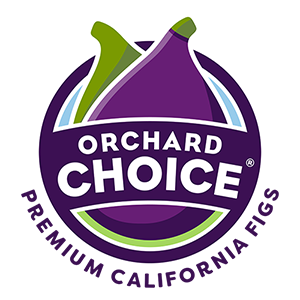The idea of brain healthy foods and how the foods we eat influence our brain health is a newer area of nutrition research. However, there’s growing evidence to suggest that not only do foods and nutrients play in the health of brain cells and their communication but potentially play a much bigger role than we ever thought! The connection between diet and brain health is not fully understood, but there most benefits stem from anti-inflammatory effects seen by consuming specific foods or nutrients. Learn more about fruits good for your brain. There are so many reasons to eat dried figs, health benefits included.

What are figs good for
I’ve talked before about how figs are such an ideal food for staving off, or tempering, inflammation—namely the not-so-good kind of inflammation. Sometimes inflammation is a good thing: it’s a natural immune response designed to protect your body from a pathogen, or help it heal. In other situations, inflammation is unhealthy, even problematic because it sticks around. The low-grade chronic inflammation taxes your immune system, hindering your body’s ability to keep itself healthy, but it also impacts the endocrine, cardiovascular, and nervous systems which includes the brain.
In fact, research now suggests, that while it may not be the initial cause, inflammation can play a key role in brain health and the progression of conditions like dementia, depression, anxiety, Alzheimer’s, and Parkinson’s. So because figs fit so well into an anti-inflammation diet, this makes them an excellent choice to promote long term brain health. Learn more about fruits good for your brain and why figs should become a go-to in your diet:

#1 Figs are great for gut health, and what’s good for your gut is good for your brain.
Did you know there is a connection between your GI tract and your brain? It’s called the gut-brain axis, and there is constant communication between the two areas of the body. If this seems far-fetched, then consider how being stressed or anxious about something has a tendency to cause a little GI upset or other GI changes. This helps make the idea of your gut and brain being connected seem a little less shocking. This axis or connection is why what’s good for your gut is also now considered to be good for your brain, and figs are so good for your gut health because they’re packed with fiber!
A single serving of dried figs delivers 20 percent of your daily fiber target. Fiber helps to diversify your gut microbiome and the combination of an ample and diverse makeup of good bacteria in your GI tract is key for a so-called healthy gut. Those good bacteria help to build a strong barrier in your GI tract—one that allows the healthy nutrients through and blocks the unhealthy compounds that might trigger inflammation (among other things). The indigestible fiber in figs also feeds those good bacteria, keeping them healthy and happy.

#2 Figs are packed with healthy carbs.
If your diet is heavy on refined and/or processed carbs (white bread, overly sweet crackers, chips, white pasta and white rice), chances are you’re stoking the inflammation flames. That’s because refined and/or processed carbs (and the foods made from them) are typically low in fiber, so they’re digested in a way that quickly spikes your blood sugar. That quick spike gets followed by a dip (sometimes referred to as a crash) two to four hours later. These extreme up-and-downs in your glucose not only triggers inflammation but can cause you to become “hangry” or feel light-headed or weak.
One of the best ways to minimize those swings—and stave off inflammation—is to choose carbs or carb-rich foods that are whole or minimally processed. These kinds of carbs are higher in fiber and tend to have a lower glycemic impact and associated glycemic index value. When a food that’s low on the glycemic index is digested, it causes a slower, steadier rise in your blood sugar — which is what you want! Whole food sources like fruits (fresh or dried), vegetables, legumes, and whole grains all typically have a low or lower GI index value. Another reason to choose these types of foods is that research has shown lower glycemic index foods — like figs — are fruits good for your brain, specifically good for brain health in terms of improving brain function, memory, and even attention.

#3 Figs are rich in brain-healthy nutrients.
Add dried figs to fruits good for your brain. Dried figs are an easy way to get two lesser-known, brain-healthy minerals into your diet: copper and manganese. A cup of dried figs delivers nearly 50 percent of your copper needs, and about one-third of your daily dose for manganese. Granted a full cup of figs might be a tad too much, but even aiming for a quarter cup offers healthy amounts of both minerals.
Both copper and manganese seem to be quite key for brain health, and specifically mental wellness. In a recent study of Japanese adults, those who had the lowest levels of manganese and copper were three times more likely to have anxiety and depressive symptoms than their counterparts who had healthier levels of the two minerals. The study authors hypothesized that one of the plausible benefits to copper and manganese could be their anti-inflammatory properties and that fact that depression is related to both chronic inflammation and immune system dysfunction.
How to Eat Dry Figs
You can’t beat the nutrients and brain-boosting potential that figs offer, and the fact that Sun-Maid and Orchard Choice California Dried Figs are such a great portable snack and a sweet, fiber-rich food that I can toss in salads, lunchboxes, or even add to a charcuterie board are reasons why they’re a staple in my house.
Article by Carolyn Williams, PhD, RD








One Comment on “Brain Healthy Foods: How Dried Figs Are Good for Your Brain”
Wow. Fiber and two minerals to aid the gut and brain. I read a lot about food and gut immunity but hadn’t come across this yet. This will be a new choice when I need a sweet. Thank you!